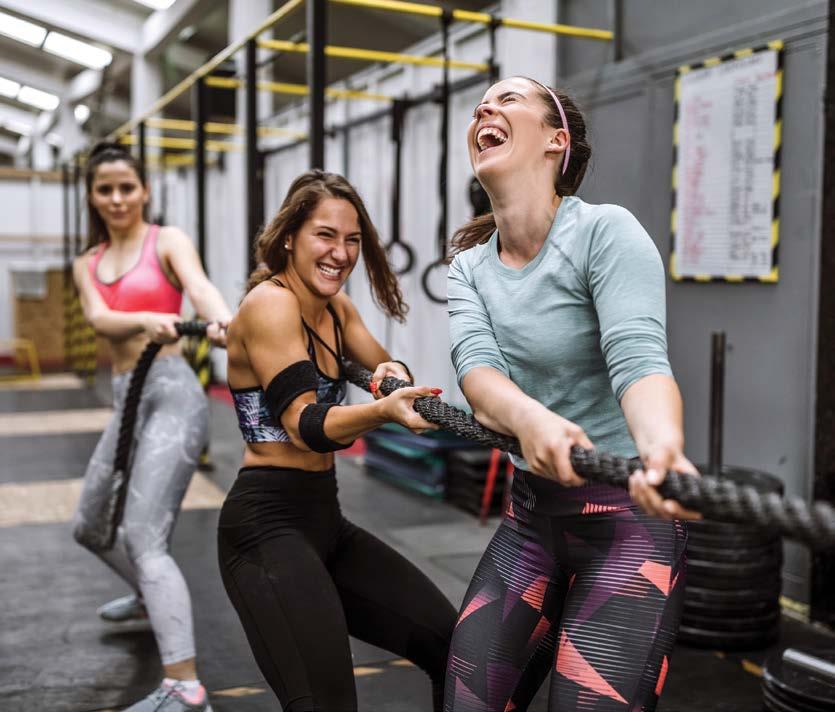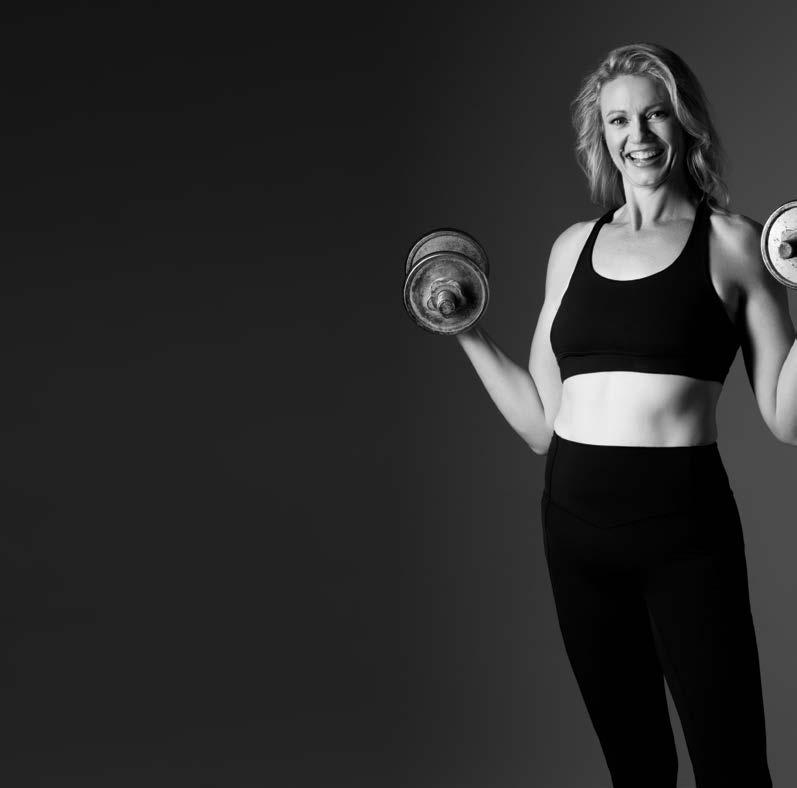
8 minute read
The Circuit
The
NEWS | TIPS | FACTS CIRCUIT
Advertisement
Plastic crisis Microplastics are tiny pieces of plastic fragments found in the air, ocean and, according to one study by the American Chemical Society, our bodies. They can be ingested from food stored in containers or from utensils, or even from breathing air containing plastic degradations; some pieces are so small they’re able to enter human tissues, where they may trigger immune reactions or release toxic substances. Researchers found that the average person consumed 70,000 plastic microparticles in one year, and those who drink only bottled water consumed an additional 90,000 fragments annually. While researchers are still studying the impact of microplastic ingestion on humans, if you haven’t made the switch to glass or stainless steel food containers, it’s time to make it a priority.
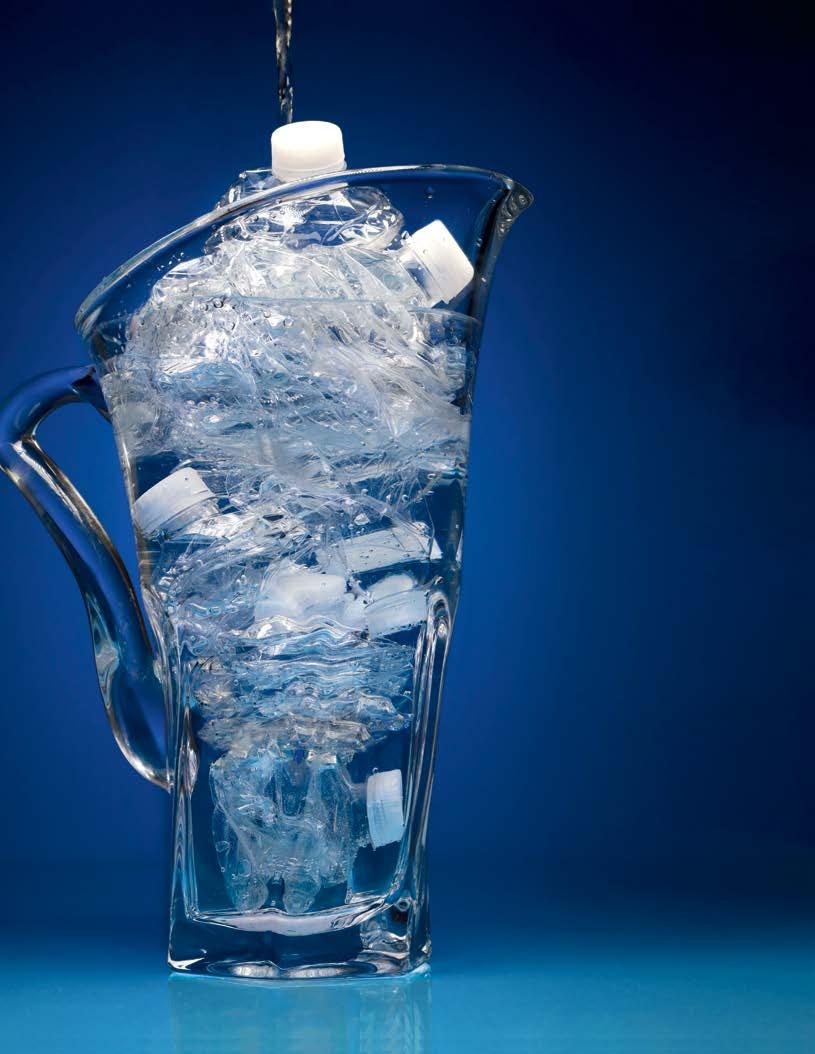
Other ways to nix plastic 1. Support restaurants that are committed to using sustainable packaging. 2. Look for products such as laundry detergents that are stored in cardboard. 3. Hit your local market with your own containers for nuts, grains and other loose goods. 4. Eliminate unnecessary packaging from frozen or ready-made meals. 5. Make your own cleaning products. Try this all-purpose cleaner: ½ cup distilled vinegar, 2 cups water, 20 drops essential oil. 6. Quit impulse buying. Shop consciously and avoid purchases you don’t need – cheap and useless items just end up in the bin.
PHOTO PAUL BUCETA
Home sweat home
Can’t face the commute to the gym today? Good news for you: the Journal of Physiology reports you can get a just as effective workout in the comfort of your own home. In this study, obese participants were divided into three exercise groups: a supervised, in-lab high-intensity interval training (HIIT) routine, 150 minutes of moderate-intensity exercise, or a home-based HIIT workout. Researchers discovered the self-regulated home HIIT was equal to the other methods in final results, including improved body composition, decreased risk of cardiovascular disease, and an improved ability to regulate glucose.
Hot take A 25-minute sauna session increases blood pressure and heart rate to a comparable level of a short, moderate workout. If you’re planning a super intense workout, maybe save your sauna session for another day. Source: Complementary Therapies in Medicine
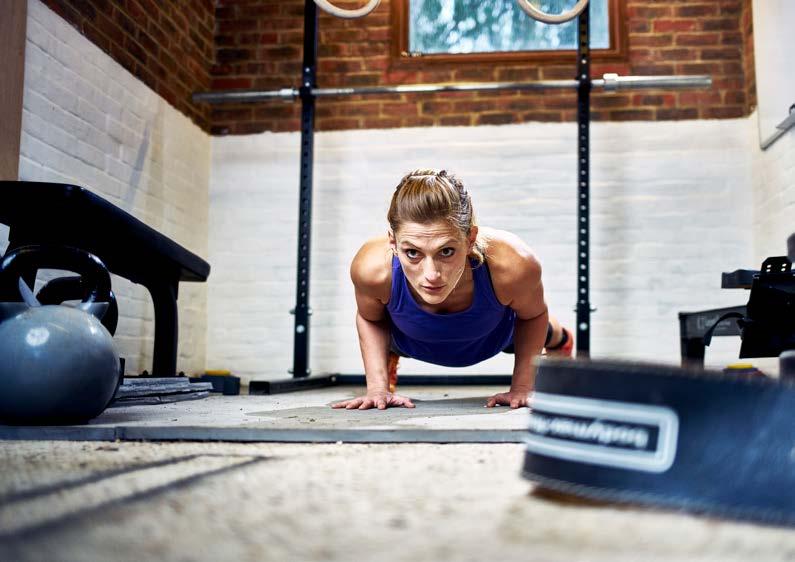
Tough body, tough mind
We don’t need to tell you that staying fit makes you a physical and physiological warrior, but the journal Menopause recently found that exercise also boosts your mental health. Women aged 45 to 69 years old with weak upper and lower bodies were more inclined to experience anxiety and depression. So if you’re managing your mindset, make strength training as much a priority as writing in your gratitude journal.
4,500
Check your pedometer! This many steps per day decreases your risk of premature death by 40 per cent. Source: JAMA Internal Medicine
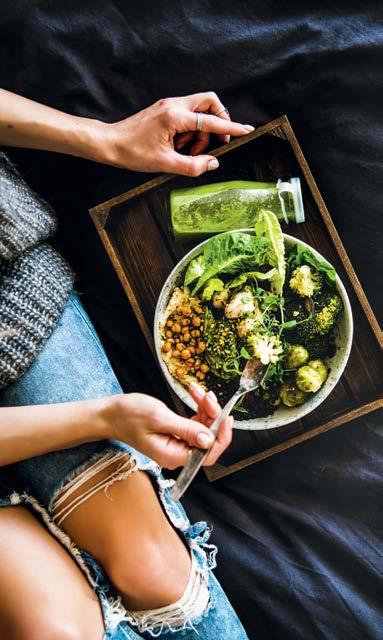
Sit down!
It seems like in recent years we’re getting told off for sitting too much – in the car, at the computer, in front of the television. But is there ever a good time to park it? The Journal of Consumer Research says sitting while eating can put less physical stress on your body, which in turn appears to amplify your taste buds, making meals that much tastier. Standing while eating could come in handy if you’re looking to curb midnight snacking, though. Participants reported consuming less while standing – a phenomenon that occurs due to physical stress suppressing appetite, say researchers.
Two-second study
Coffee stimulates brown fat, a substance that improves blood sugar control and blood lipid levels and aids weight loss. Source: University of Nottingham
Slow your roll
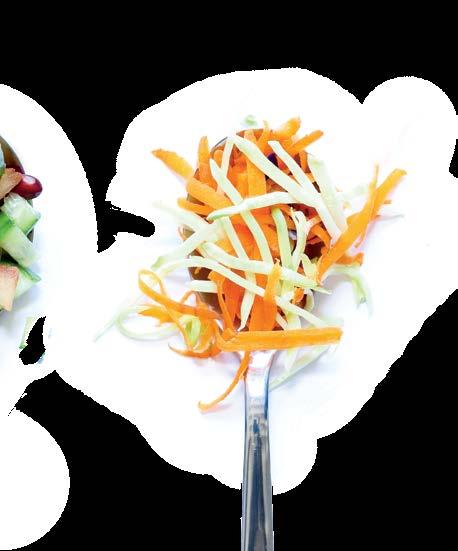
The Glycemic Index (GI) measures how quickly foods release glucose into the bloodstream. Low GI foods (those with a score of 55 or lower) can contribute to better weight management, cardiovascular health, cholesterol levels and cognitive performance. Try incorporating these low GI foods into next week’s menu:
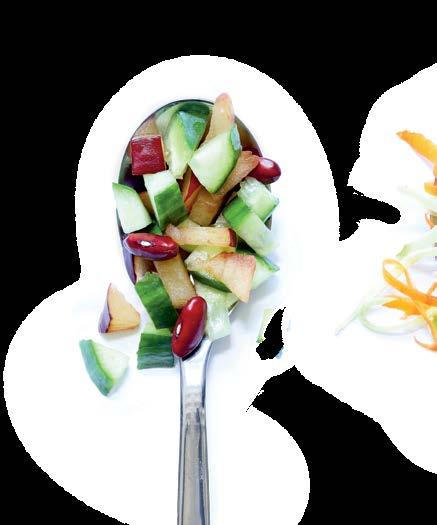
Quinoa Carrots Kidney beans Plums Whole milk
Step away from the mass-produced diet plan. A new study found that even identical twins have completely different biological responses to the exact same meals, suggesting that individual metabolism, gut microbiome, schedules, meal timing and activity levels are all important factors in choosing a meal plan. Time to stop assuming we’re all cut from the same cloth. One size doesn’t fit all

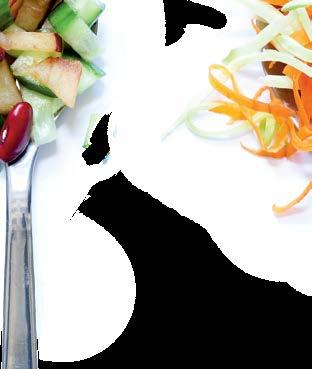
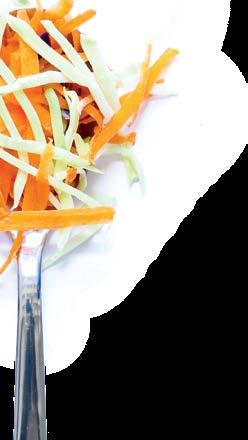
Go outside!
The University of Exeter discovered that those who spend at least two hours in nature each week enjoy better overall health and psychological wellbeing compared to those who spend less time outdoors. The majority also reported outdoor activities took place within about a three kilometre radius of each subject’s home, so even if you live in the city, visit your local park to experience reduced stress and a more positive outlook.
Yoga for healthy ageing
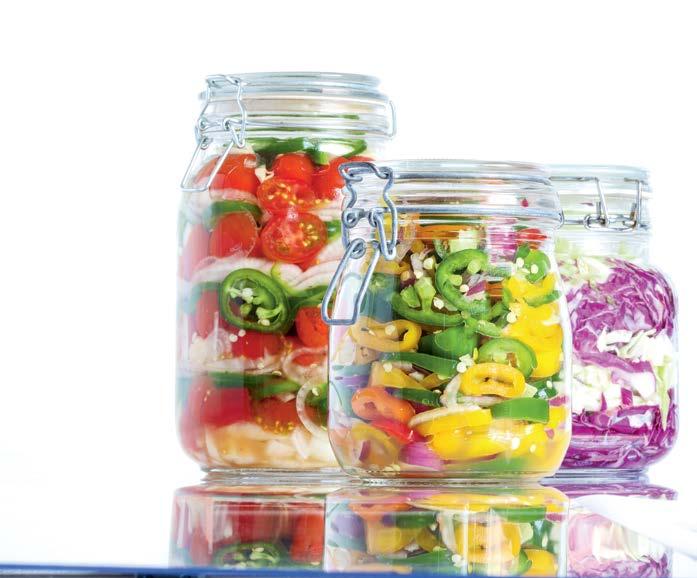
Yoga may have a reputation for being only for exceptionally bendy, Lululemon-clad 20-year-olds, but research published in the International Journal of Behavioral Nutrition and Physical Activity is putting the kibosh on that notion. This review found weekly yoga practice could be especially beneficial for those aged 60 and older, improving balance, flexibility and strength, while also boosting sleep quality and overall vitality.
6
The amount of daily screen-time hours that were shown to contribute to depression.
Source: Preventative Medicine Reports
Gut feelings
In a meta-analysis conducted by Chinese researchers, over half of the study findings concluded that healthy gut microbiota contributed to reduced levels of anxiety. While supplementing with probiotics was helpful, the efficiency rate of diet changes to include more gut-healthy bacteria through food sources was a whopping 86 per cent.
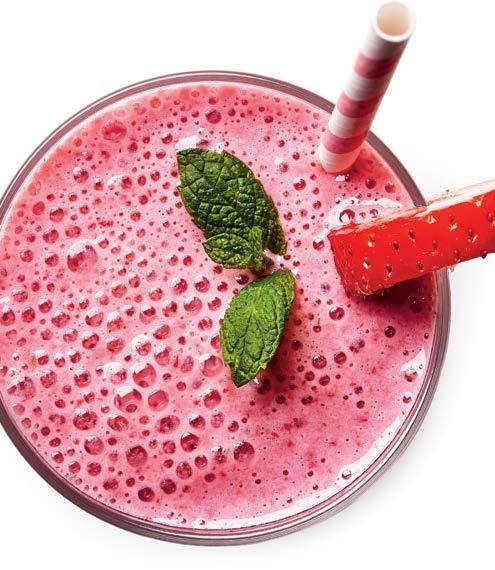
400 mg The amount of caffeine that’s considered safe per day for a healthy adult. That’s approximately 2.5 cups of coffee. Source: Examine.com
Supplement spotlight: biotin
What it is:
What it does:
Where to find it:
Could you be deficient? A water soluble B vitamin that helps metabolise fats, protein and carbs.
Maintains a healthy pregnancy, lowers blood glucose, reduces nerve damage.
Red meat, eggs, seeds, nuts, wheat bran.
Deficiency is rare in humans because biotin is easily available in food, and gut bacteria create more biotin than the body needs. But common deficiency symptoms can include hair loss, a scaly, red rash, depression and lethargy.
Consider swapping your usual bedtime snack for a protein shake. A study published in Frontiers in Nutrition found that protein powder containing casein paired with the rejuvenating benefits of a good night’s sleep equalled maximised strength and muscle gains after resistance training. What’s more, some participants also showed an increased fatburning rate the next day, likely because casein triggers your body to use up fat stores. Sweet dreams
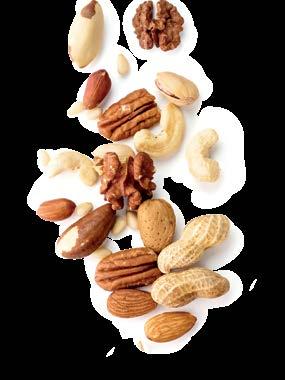
Brainy hack Plant-based eaters, want to boost your brain power? Add some creatine, says the American Physiological Society, with findings showing that supplementing with creatine boosted cognition after just four weeks. Creatine is a naturally occurring chemical found in red meat, seafood, and dairy, but brain power was heightened more from a supplement than from a meat-lover’s diet in this study.
MYTH BUSTED
Supplementing with biotin strengthens hair and nails. Myth! While some women have experienced firmer fingernails after supplementing, according to the Office of Dietary Supplements (ODS), there is little concrete evidence that biotin supplements can strengthen nails and promote healthy hair.
Women who slept with light present were 17 per cent more likely to gain five kilograms or more in the follow-up period five years later.

Get turned off If you regularly fall asleep with the television on, it could contribute to weight gain, according to a new study published in JAMA Internal Medicine. Examining the effects of artificial light, including streetlights and neon signs, this female-only study found that those who were exposed to light during bedtime hours were more likely to gain weight than those who slept in darkness. The study notes that minimal light, such as a nightlight, had no effect. Researchers believe the correlation is due to a disruption in circadian rhythms, resulting in altered hormones and biological processes.
Tired? Drink more water. Regularly skimping on your sleep can make you more likely to be dehydrated – 59 per cent more likely to be exact — which also plays a role in fatigue and brain fog. According to research published in Sleep, the antidiuretic hormone vasopressin, which is responsible for controlling the body’s water balance, is generated more quickly and later on in the sleep cycle. If you’re getting less than six hours of sleep each night, you could be missing the sweet spot when vasopressin is released, resulting in hydration disruption. The study suggests if you’re struggling to get enough sleep, the answer isn’t more coffee; increasing your water intake the next day could combat the associated dehydration. Bonus benefit? You’ll feel a little less groggy.

Working this many hours during at least 50 days out of the year increases your risk of stroke by 29 per cent. Keep that up for 10 or more years, and your risk shoots up to 45 per cent. Source: Stroke10
UNCOVER YOUR STRONG
